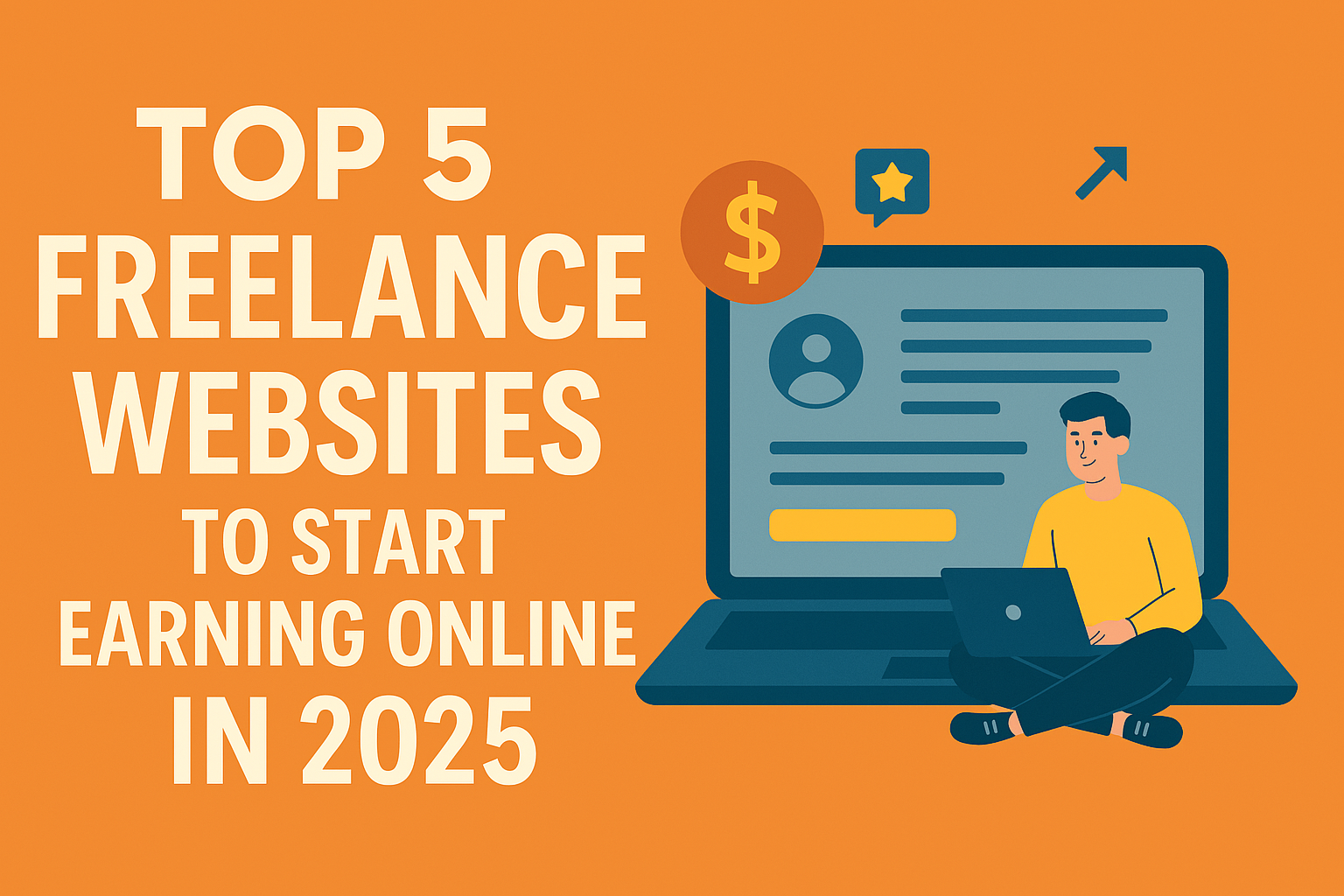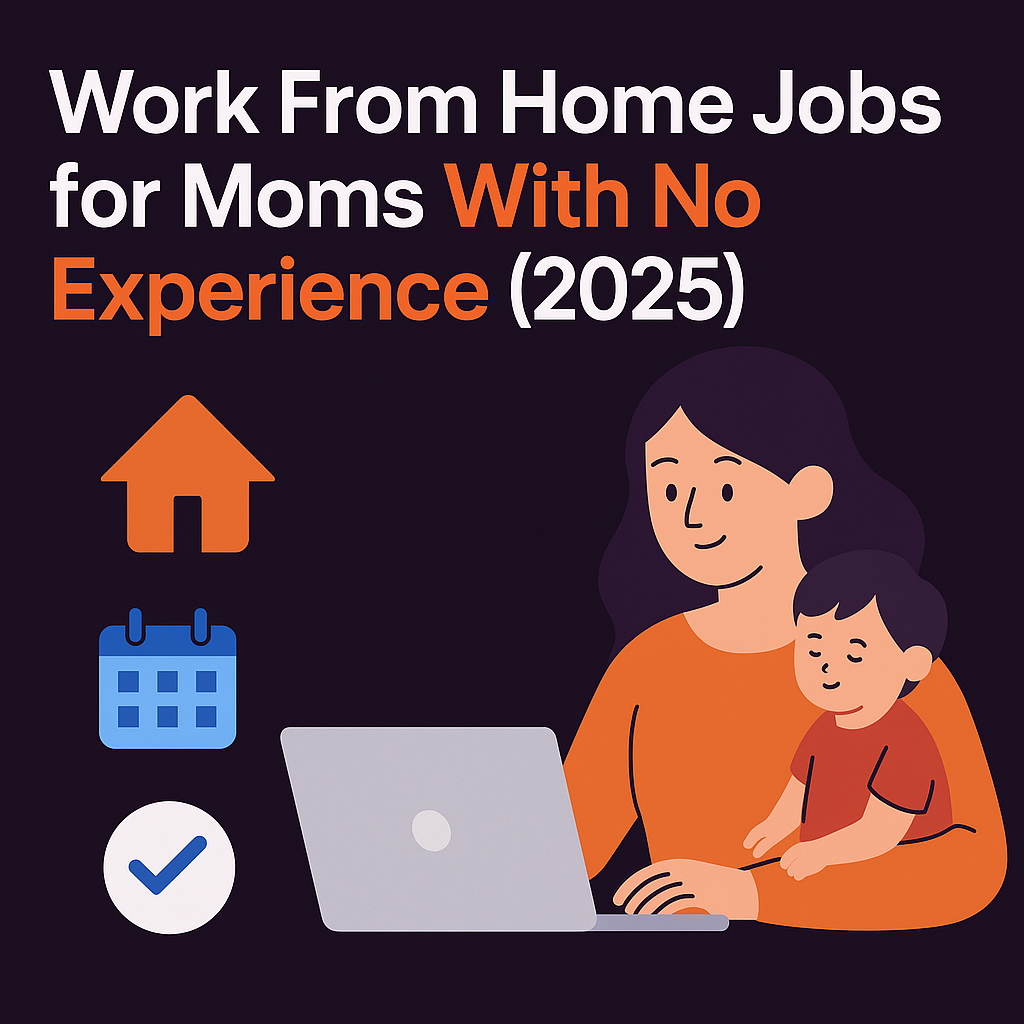In today’s digital economy, freelancing has emerged as a powerful avenue for professionals to monetize their skills, work on their own terms, and build location-independent careers. Whether you’re looking to earn extra income alongside your day job or transition to full-time remote work, the right platform can make all the difference in your freelancing journey. With countless marketplaces competing for talent, knowing where to invest your time and effort is crucial for success.
For 2025, I’ve compiled a list of five trusted freelance websites that continue to provide reliable opportunities across various industries. Each platform offers unique advantages depending on your skill level, professional background, and income goals. Let’s explore the top contenders that can help you start earning online this year.
1. Fiverr: Best for Beginners and Packaged Services

Fiverr has evolved significantly from its “$5 gig” origins into a robust marketplace where freelancers can offer services (called “gigs”) across 500+ categories.
How it works: Unlike most platforms, Fiverr uses a seller-driven model where you create predefined service packages with clear deliverables and pricing tiers. Clients browse and purchase your services without the need for bidding or proposals.
Who it’s great for: Beginners with marketable skills who prefer a structured approach to selling services. It’s particularly strong for creative fields (graphic design, writing, voice overs), digital marketing, and programming.
Pros:
- Low barrier to entry with simple profile setup
- Passive income potential as clients find you
- Clear pricing structure with package options
- Protected payments system
Cons:
- 20% commission on all earnings
- Highly competitive in popular categories
- May take time to build visibility and reviews
Tip: Create very specific, niche gigs rather than generic offerings to stand out from the crowd. For example, instead of “logo design,” try “minimalist logo design for fitness brands.”
2. Upwork: Ideal for Professional Long-Term Relationships

Upwork remains the largest freelance marketplace globally, connecting professionals with clients seeking quality work across virtually every industry.
How it works: Freelancers create detailed profiles highlighting their skills and experience, then apply to jobs by submitting proposals. You can bill clients hourly (with time tracking) or agree on fixed-price milestones.
Who it’s great for: Mid-level to experienced professionals looking for substantial projects and long-term client relationships. Particularly strong for development, writing, consulting, marketing, and administrative work.
Pros:
- High volume of quality jobs posted daily
- Advanced search filters to find relevant opportunities
- Secure payment protection for hourly and milestone work
- Ability to build long-term client relationships
Cons:
- Sliding fee structure (5-20% based on client billing)
- Competitive proposal process
- Limited monthly “connects” (tokens needed to submit proposals)
- More extensive verification processes
Tip: Customize each proposal to address the client’s specific needs rather than sending generic templates. Include relevant portfolio samples that directly relate to the job requirements.
3. Toptal: For Elite Freelancers Seeking Premium Rates

Toptal positions itself at the high end of the market, claiming to connect businesses with the “top 3%” of freelance talent.
How it works: Freelancers must pass a rigorous screening process including skills assessment, language proficiency, personality evaluation, and test projects. Once accepted, Toptal’s matching specialists connect you with relevant client opportunities.
Who it’s great for: Experienced professionals in software development, design, finance, project management, and product management who can command premium rates.
Pros:
- High-paying projects with established companies
- No bidding war or competing against dozens of proposals
- Consistent work opportunities for accepted talent
- No commission fees taken from freelancer earnings
Cons:
- Extremely selective admission process
- Limited to specific professional categories
- Extended screening process (2-5 weeks)
- Must maintain availability minimums
Tip: Prepare thoroughly for the screening process by reviewing your portfolio, practicing technical interviews, and being ready to demonstrate expert-level knowledge in your field.
4. Freelancer.com: Wide Range of Opportunities and Contests

Freelancer.com offers a mix of traditional project-based work and creative contests, making it a versatile platform for different work styles.
How it works: Freelancers bid on projects or participate in contests where multiple freelancers submit completed work and only the winner gets paid. The platform supports both hourly and fixed-price projects.
Who it’s great for: Versatile freelancers who enjoy competitive environments and have skills applicable to quick turnaround projects. Strong in web development, design, writing, and data entry.
Pros:
- Large job marketplace with diverse opportunities
- Contest format provides portfolio-building opportunities
- Lower competition than some larger platforms
- Multiple payment withdrawal options
Cons:
- User interface feels dated compared to competitors
- Higher proportion of lower-budget projects
- Fee structure includes both membership and commission fees
- Some reports of fake job postings
Tip: Consider participating in contests to build your portfolio and earn platform recognition before bidding on higher-value projects.
5. PeoplePerHour: Best for European/UK Market Focus

PeoplePerHour maintains a strong presence in the European freelance market while offering global opportunities.
How it works: The platform combines elements of both Fiverr’s packaged services (called “Hourlies”) and Upwork’s proposal-based system. Freelancers can both create service packages and bid on client job postings.
Who it’s great for: Freelancers targeting European clients, particularly in creative fields, marketing, and business support services.
Pros:
- Strong presence in UK/EU markets
- Hybrid model allows both passive and active job seeking
- CERT dispute resolution system protects both parties
- Lower competition than global giants like Upwork
Cons:
- 20% commission on initial earnings with each client (reduces over time)
- Less job volume than larger platforms
- Manual withdrawal process
- Approval process for new accounts can be lengthy
Tip: Create compelling “Hourlie” packages that solve specific problems for businesses in your target industry to attract initial clients without competing for posted jobs.
Tips to Stand Out as a Beginner Freelancer
Regardless of which platform you choose, these strategies will help you gain traction faster:
- Complete your profile 100% – Platforms prioritize complete profiles in search results
- Showcase relevant portfolio pieces – Quality over quantity; 5-8 excellent examples beat 20 mediocre ones
- Start with competitive pricing – Build reviews first, then gradually increase rates
- Respond quickly to inquiries – Many clients hire the first qualified person who responds
- Over-deliver on initial projects – First impressions lead to repeat clients and referrals
- Niche down – Specialize in serving a specific industry or solving a particular problem
Conclusion
The freelance economy continues to expand in 2025, offering unprecedented opportunities for skilled professionals to build independent careers. Each platform discussed has its unique strengths and ideal user profiles – the best choice depends on your skills, experience level, and career goals.
The key to freelance success isn’t just choosing the right platform but taking consistent action. Sign up for one or two platforms that align with your strengths, complete your profile thoroughly, and begin applying for opportunities that match your expertise. Remember that building momentum takes time, but with persistence and quality work, you can establish a thriving freelance business.
Ready to take control of your income and career? Choose a platform from this list, create your profile today, and take the first step toward freelance success in 2025.




